Restoring degraded landscapes for a sustainable future in Rwanda
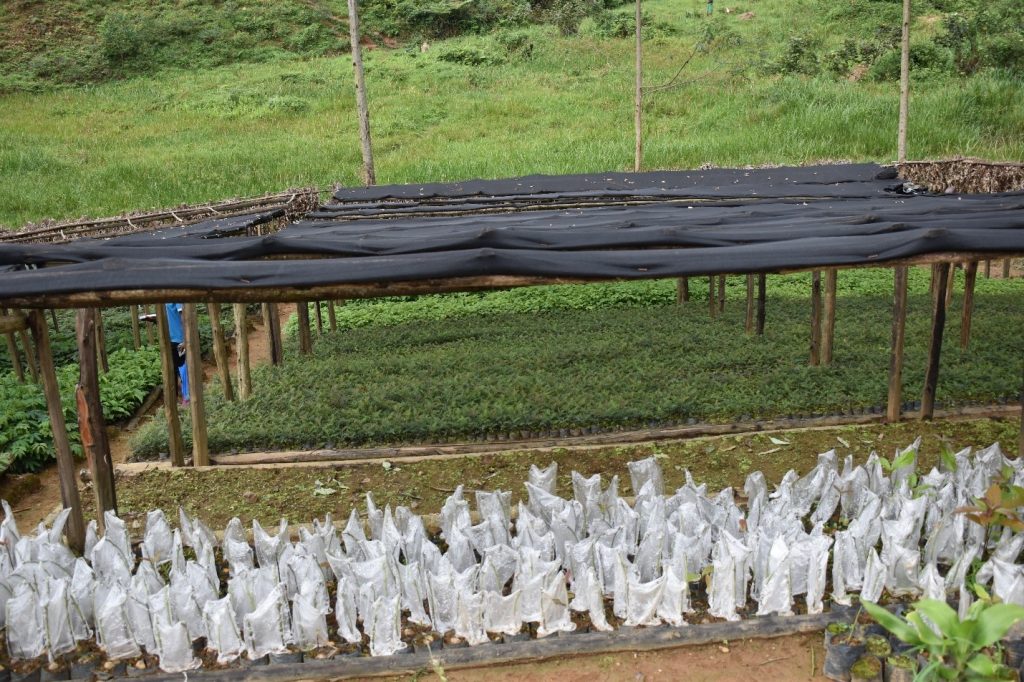
In Rwanda, Nature Rwanda and BirdLife International are working with local communities to restore degraded landscapes, while enhancing climate resilience.
By Elie Sinayitutse
Located in Western Rwanda, Butare and Bweyeye sectors of Rusizi District are part of the Lake Kivu and Rusizi River basin bordering Nyungwe National Park, fringed by high mountains in Rwanda and Burundi. The region with a population of over 43,590 people, has been negatively impacted by years of unsustainable land use on steep slopes, leading to serious soil erosion, sedimentation of rivers, and reduced agricultural productivity – challenges that are exacerbated by climate change. Further, erratic heavy rainfall causes flooding and landslides, displacing people, destroying crops and sometimes causing fatalities.
In response, Nature Rwanda and BirdLife International, with the support of TerraFund for AFR100, initiated a 6-year collaborative project in 2022 to enhance community capacity for climate resilience and restore degraded agricultural land in Bweyeye and Butare. This project which commenced in 2022 aims at restoring 500 hectares of degraded lands by planting 300,000 trees, comprising 15,000 fruit trees and 285,000 agroforestry and fodder trees, while building their resilience through improved livelihoods and increased of climate change.
“Rwanda’s rugged topography and climate vulnerabilities demand concerted action against the ravages of climate change. In the Butare and Bweyeye sectors of Rusizi District, we are working with district and local leadership by taking action towards reforestation, community empowerment and enhancing people’s resilience and livelihoods. This collaborative effort underscores our commitment to mitigating climate impacts and fostering sustainable futures for both people and nature“, notes Jean Claude Dusabimana, Nature Rwanda’s Executive Director.
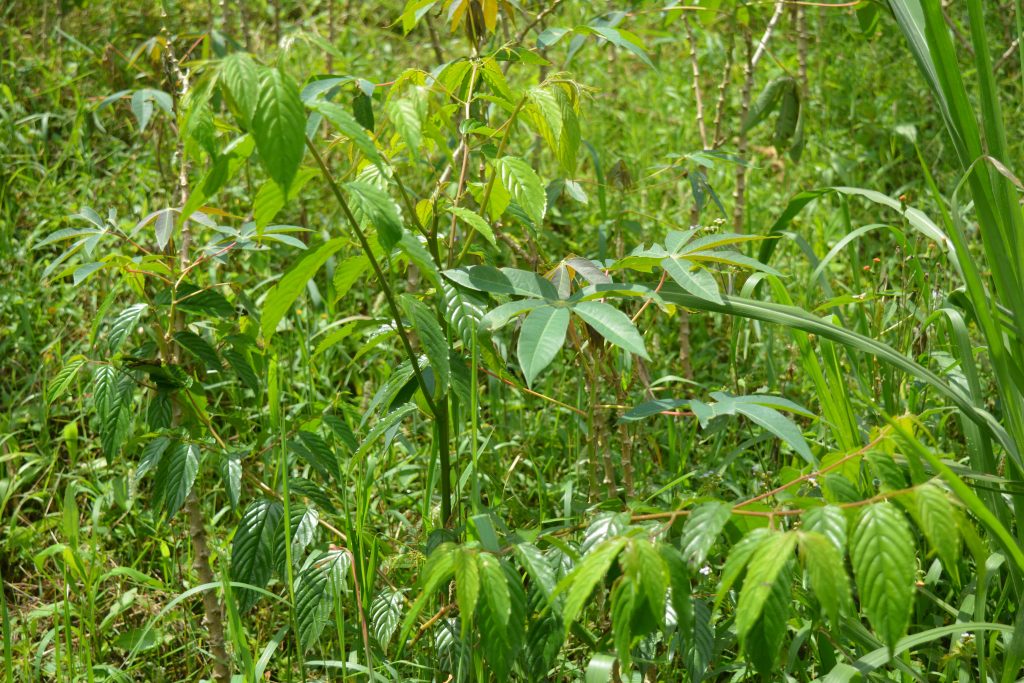
As part of project implementation, a dedicated team of 25 Community Tree Stewards (CTS) was established. The stewards, who are mainly youth from the community, play a central role in Nature Rwanda’s community driven restoration approach through community mobilization, tree monitoring, and spreading awareness about the importance of trees on farms. This approach has been instrumental in ensuring community ownership of the project thus ensuring the success of project activities.
“This project has given me more than just financial stability, it has provided me with a profound sense of purpose and ignited a passion within me for harmonizing environmental consciousness with economic sustainability. I am indebted to the opportunities this project has bestowed upon me and am thrilled about the positive changes it continues to foster, not only in my life but also within the wider community” , says Innocent Nsengiyumva, a community tree steward coordinator in Bweyeye sector.
Further, the project has focused on building community capacity for restoration and nurturing seedlings in four locally managed nurseries. To date, 20 the project has successfully planted 300,000 trees representing eight different species, created 419 jobs for community members, and mobilized 3,414 households for tree planting and monitoring.
For Marie Claire Iradukunda, a member of the tree nursery management team, the project has profoundly impacted her life. “I joined this restoration project right after completing high school. As a proud member of the nursery management team, I not only had the chance to play a role in environmental conservation but also found a practical way to sustain myself financially. The wages from the project have not only helped me to cover my personal needs but also provided the stepping stone for me to venture into pig farming as an additional source of income”, she says.
“The skills that I have gained in the project, from nurturing seedlings to managing resources, have proved invaluable in my journey. The project not only gave me a sense of purpose but also ignited a passion for balancing environmental consciousness with economic sustainability. I am grateful for the opportunities this project has offered, and I’m excited about the positive changes it continues to bring into my life and the community” , she adds.
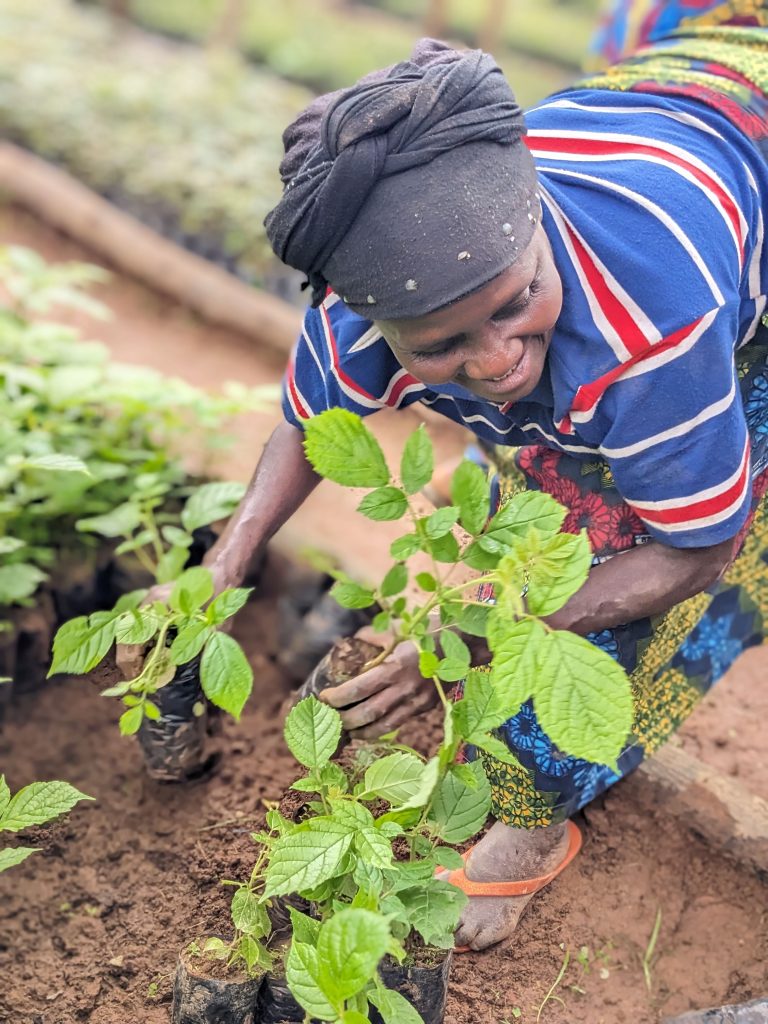
However, the road to restoration has been fraught with challenges during the initial tree-planting phase, including limited community awareness about the importance of indigenous trees and unpredictable weather patterns. Acknowledging these obstacles, the CTS were trained on how to overcome setbacks and ensure project progress. These trainings focused on risk management, communications, contingency planning and resource allocation among others.
As the project looks towards the future, Nature Rwanda celebrates being among the TerraFund for AFR100’s second cohort champions launched in January 2024, a golden opportunity to scale up the project in 2029 and deepen restoration efforts in the Lake Kivu and Rusizi River basin. This expansion will not only amplify the positive impact of the project but also solidify Nature Rwanda’s commitment to environmental conservation and sustainable development, while deepening engagements with local communities and strengthening partnerships with stakeholders.
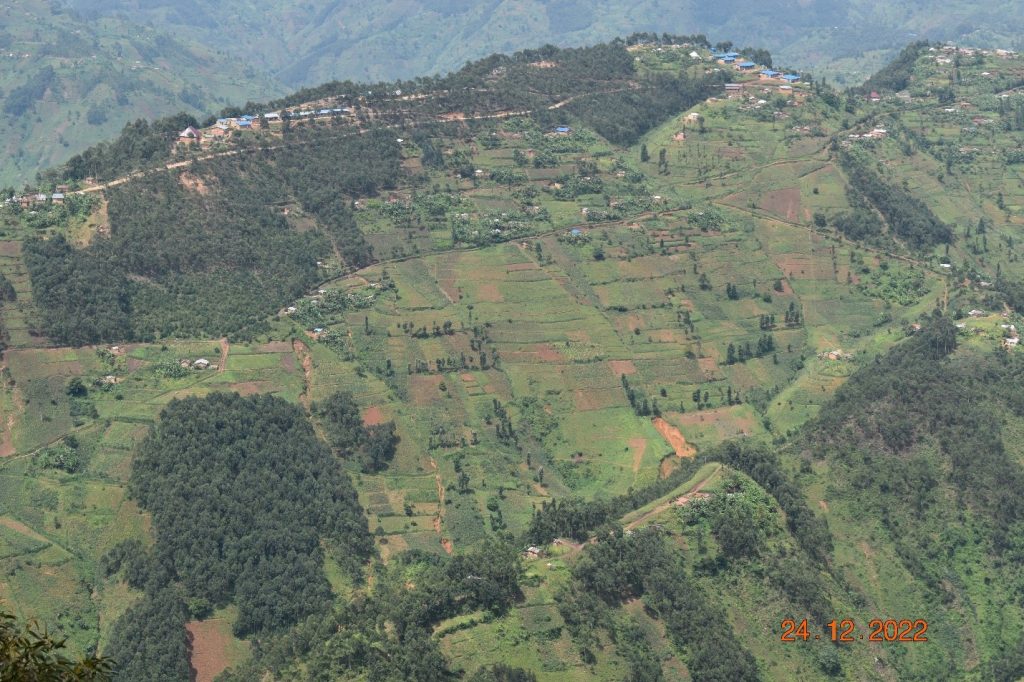
“We are delighted to see the steps local communities, with support from Nature Rwanda, have taken to change their lives and the landscapes of Kivu-Rusizi. We strongly believe in community-driven action with national civil society support. We believe that with a credible BirdLife partner like Nature Rwanda and support from government agencies, our efforts to restore the Kivu-Rusizi landscapes will succeed” , says Ken Mwathe, Policy, Climate and Communications Coordinator for Africa at BirdLife International.
“We are happy to be a part of the TerraFund for AFR100’s second cohort champions. This presents an extraordinary opportunity for us to expand our restoration efforts to an additional 604 hectares, increasing the impact of our work on landscape restoration and community livelihoods. We are eager to engage more households in tree planting, strengthen the capacity of Community Tree Stewards, establish climate governance committees at the village level, and create a community revolving fund at the cell level to support micro green projects within the community”, notes Dusabimana.
Indeed, the journey toward sustainability is ongoing. A collective endeavor fueled by passion, perseverance, and the unwavering belief that a better future is within reach. As the sun sets over the rejuvenated landscapes of Lake Kivu and Rusizi River basin, it illuminates not just the beauty of nature restored, but the resilience of the human spirit, standing as a testament to what can be achieved when communities unite in pursuit of a common goal.
About AFR100
The TerraFund for AFR100 (the African Forest Landscape Restoration Initiative) is a country-led effort to bring 100 million hectares of land in Africa into restoration by 2030. AFR100 contributes to the Bonn Challenge, the African Resilient Landscapes Initiative (ARLI), the African Union (AU) Agenda 2063, the Sustainable Development Goals and other targets.
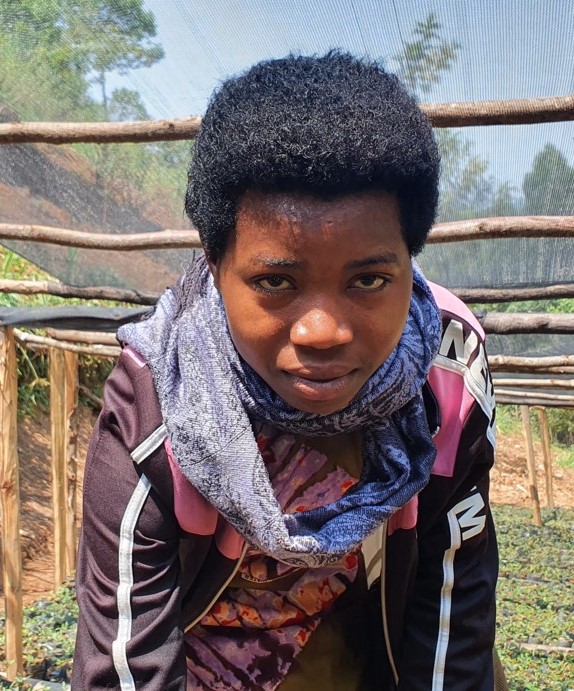
“The skills that I have gained in the project, from nurturing seedlings to managing resources, have proved invaluable. The project not only gave me a sense of purpose but also ignited a passion for balancing environmental consciousness with economic sustainability. ”
Marie Claire Iradukunda, a local community member